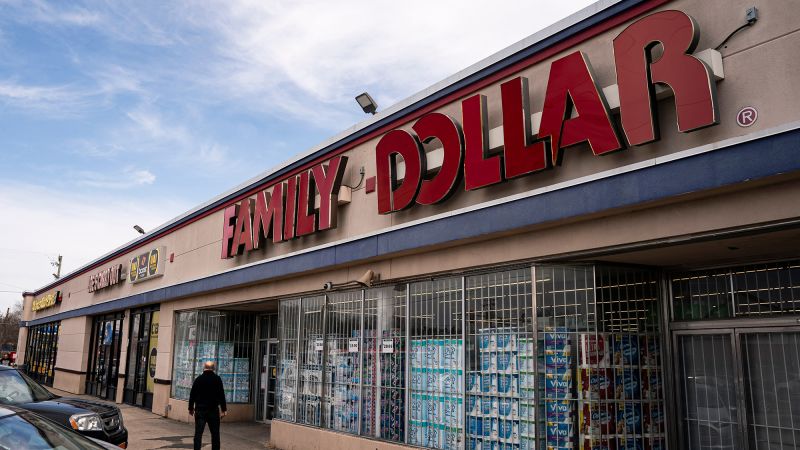
1,000 dollar stores are closing. These cities have revolted against them for years
CNN
When Vanessa Hall-Harper, a city councilor in Tulsa, Oklahoma, learned that Family Dollar was closing nearly 1,000 stores Wednesday, she had a surprising reaction.
When Vanessa Hall-Harper, a city councilor in Tulsa, Oklahoma, learned this week that Family Dollar was closing nearly 1,000 stores, she had a surprising reaction. “For communities that have been negatively impacted by the proliferation of dollar stores, it’s a great thing,” she told CNN. “I’ve been waiting on this announcement for a long time.” The loss of these stores will lead to layoffs and may leave a void for low-income Americans with already limited shopping choices. The companies and proponents of dollar store chains say they provide affordable food and essentials for low-income Americans. In some places, dollar stores are the only retailers around. But critics of Family Dollar and other dollar store chains’ business practices like Hall-Harper say the closures highlight the risks of communities relying too heavily on dollar store chains. They hope that the closures will push cities to improve their efforts to draw in independent supermarkets and create alternative retail options in areas saturated by dollar stores. Hall-Harper has led Tulsa’s effort to restrict the growth of the three major dollar store chains — Family Dollar, Dollar Tree and Dollar General — in the predominately Black area of North Tulsa. (Dollar Tree, typically located in the suburbs, owns Family Dollar, which focuses mainly on cities. Dollar General, the biggest of the three chains, operates in mostly rural areas.) In 2018, Tulsa became the first major city to pass legislation blocking such types of stores from opening within a mile of an existing location. At the time, Tulsa had more than 50 of the three chains’ stores in the city.













